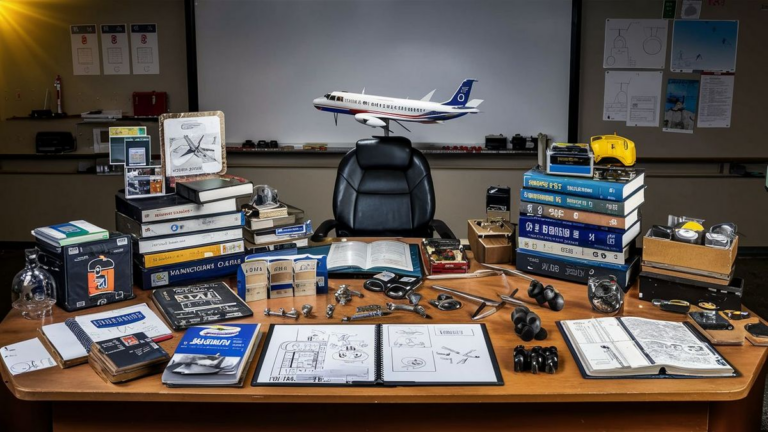Ensuring the safety and functionality of aircraft is a crucial responsibility, and aircraft mechanics play a pivotal role in achieving this. Aspiring individuals looking to embark on a career as an aircraft mechanic must meet specific education requirements to gain the necessary knowledge and skills for success in this field.
Educational Pathways
The journey to becoming an aircraft mechanic typically involves pursuing educational programs that provide a solid foundation in aviation maintenance. One common route is to enroll in a Federal Aviation Administration (FAA)-approved Aviation Maintenance Technician (AMT) program. These programs are offered by various institutions, including technical schools and community colleges.
Another pathway is through obtaining a degree in aviation maintenance or a related field from a recognized institution. While a degree may not be mandatory, it can enhance a candidate’s qualifications and open up additional opportunities for specialization or advancement within the aviation industry.
FAA Certification Requirements
Regardless of the educational path chosen, all aspiring aircraft mechanics must obtain FAA certification. This process involves meeting specific experience requirements and passing written, oral, and practical exams. The FAA offers three main types of certifications for aircraft mechanics:
- Airframe Mechanic Certificate: Focuses on the maintenance of an aircraft’s structure, systems, and powerplants.
- Powerplant Mechanic Certificate: Concentrates on the maintenance of aircraft engines and associated systems.
- Combined Airframe and Powerplant (A&P) Certificate: Encompasses both airframe and powerplant maintenance, providing a comprehensive qualification.
Hands-On Experience
While education and certification are essential, gaining hands-on experience is equally crucial for aircraft mechanics. Many programs include practical training components, allowing students to apply their knowledge in real-world scenarios. Additionally, completing an apprenticeship or on-the-job training under the supervision of experienced mechanics further hones skills and prepares individuals for the dynamic challenges of the aviation maintenance field.
Continuing Education and Specialization
Continuing education is vital in the ever-evolving aviation industry. Aircraft mechanics can pursue advanced certifications, attend workshops, or participate in specialized training programs to stay updated on the latest technologies and industry standards. Specializing in specific aircraft types or systems can also enhance career prospects and expertise.
In conclusion, the education requirements for aircraft mechanics involve a combination of formal education, FAA certification, hands-on experience, and a commitment to continuous learning. By following a structured educational path and staying informed about industry advancements, aspiring aircraft mechanics can not only meet the necessary qualifications but also excel in their careers.
Frequently Asked Questions
Curious about pursuing a career as an aircraft mechanic? Here are some frequently asked questions to provide more insights into this dynamic field:
| Question | Answer |
|---|---|
| 1. Is a degree necessary to become an aircraft mechanic? | While not mandatory, obtaining a degree in aviation maintenance or a related field can enhance qualifications and offer additional career opportunities. |
| 2. Can I specialize in a specific type of aircraft? | Yes, aircraft mechanics can choose to specialize in particular aircraft types or systems through advanced certifications and training programs. |
| 3. What are the different FAA certifications available? | The FAA offers Airframe Mechanic, Powerplant Mechanic, and Combined Airframe and Powerplant (A&P) certificates, each focusing on specific aspects of aircraft maintenance. |
| 4. How important is hands-on experience in this field? | Hands-on experience is crucial for aircraft mechanics. Practical training and on-the-job experience help apply theoretical knowledge to real-world situations. |
| 5. What is the significance of continuing education? | Continuing education is vital for staying updated on industry advancements. It includes pursuing advanced certifications, attending workshops, and engaging in specialized training programs. |
Exploring Specialization Opportunities
Beyond the general education and certification requirements, aircraft mechanics can explore various specialization opportunities to further refine their skills. Some notable areas for specialization include:
- Avionics Systems: Focusing on the electronic systems within aircraft.
- Composite Structures: Specializing in the maintenance of composite materials used in aircraft construction.
- Helicopter Maintenance: Concentrating on the unique challenges posed by helicopter maintenance.
These specializations not only deepen expertise but also open doors to niche roles within the aviation industry.
See also:






